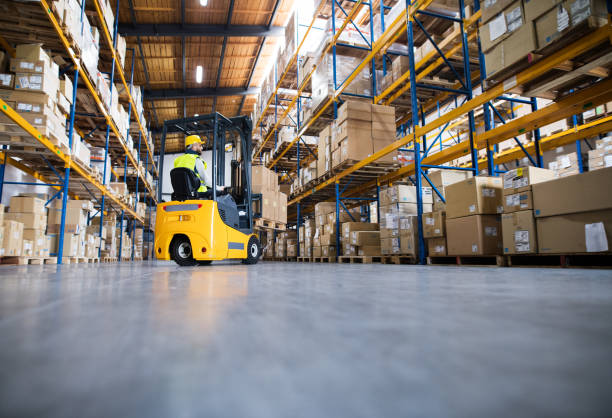Are you stressed about the ideal type of forklift for your business? You’re not alone. Many warehouse businesspeople fall into the same dilemma, especially when new in the industry. With various types, such as diesel, electric, and gas forklifts, choosing the right one for your business can be overwhelming. But that doesn’t have to be a problem anymore. This is because, here, you’ll learn all about electric and diesel forklifts, their features, pros, and cons to help you make the right pick. Let’s get down to business.
Diesel Forklifts
These types of forklifts were the most common before the introduction of electric and gas types. As the name suggests, they require diesel as a source of power. In addition, their design is ideal for rough terrains. Here are their pros and cons.
Pros
- Their engines are more powerful; hence they can lift heavier loads. However, they come in different load capacities ranging from 1.5 to 16.0 tonnes.
- They are larger and hence can carry more than electric forklifts.
- They are designed for rough terrains. Their engines and body are powerful for rugged terrains hence are best for outdoor material handling.
- They can work for longer hours without requiring fuel to top up. Consequently, there are fewer interruptions improving productivity. In addition, it only takes a few minutes to fuel hence less downtime.
- Diesel is more economical than electric when driving on sloped areas. Also, diesel is more convenient when using hydraulics with the forklift.
- When it comes to diesel forklift prices, it’s cheaper to buy.
Cons
- They’re expensive to maintain. Refueling diesel is more expensive than charging a forklift battery.
- They emit a lot of carbon, hence not ideal for environmental conservation.
- They are not ideal for indoor operations because they make a lot of noise and are larger. So, they need larger aisles to pass through; hence not economical where space is limited.
- They produce fumes leading to carbon dioxide buildup, which can be dangerous for the people present, especially without proper ventilation.
Electric Forklifts
As the name suggests, they rely on electricity to power their engines. They only came into the limelight after the diesel forklifts but have gained popularity due to their efficiency. However, like their diesel counterparts, they have different load capacities to suit different needs. Here are their pros and cons.
Pros
- They are lean-bodied, hence suitable to use indoors. Electric forklifts are ideal to use within the warehouse because they can pass through narrow aisles. Hence, they’re the best when you have limited space. However, you can also use them outdoors in cross-docking and unloading lorries.
- They move quietly. Unlike their diesel counterparts, these forklifts don’t produce much noise, which can be a nuisance, especially indoors.
- They are environmentally friendly. With the many restrictions for carbon emissions, electric forklifts are the best since they don’t produce carbon fumes. Consequently, they are non-hazardous even when used indoors.
- They have fewer moving parts hence less likely to get damaged, reducing downtime and repair costs.
- Generally, they’re easier to operate.
- They’re cheaper to maintain. This is because charging an electric forklift is cheaper than fuelling a diesel type.
Cons
- Electric forklift prices, especially in India, are higher than diesel forklift prices.
- They’re unsuitable for rugged and gradient terrains.
- They require more downtime to allow charging, which takes more time than fueling.
- They need a specific charging space.
- They are smaller and hence not suitable for bulky goods.
From these pros and cons, the choice between a diesel and electric forklift entirely lies on your business needs. For instance, if your business activities include outdoor heavy lifting, the best option would be a diesel forklift. So, you won’t need to worry about frequent charging, rugged terrains, and noise pollution. On the other hand, if your operations are largely indoors, an electric forklift is the best. It’s more convenient since it doesn’t produce noise or harmful emissions. In addition, it’s easy to maneuver within narrow spaces.
Choosing between electric and diesel forklifts can be daunting, especially for new business owners. However, you only need to identify your business needs and compare the pros and cons of each. Generally, diesel forklifts are ideal for outdoor operations, while electric forklifts are fit for indoor material handling.



